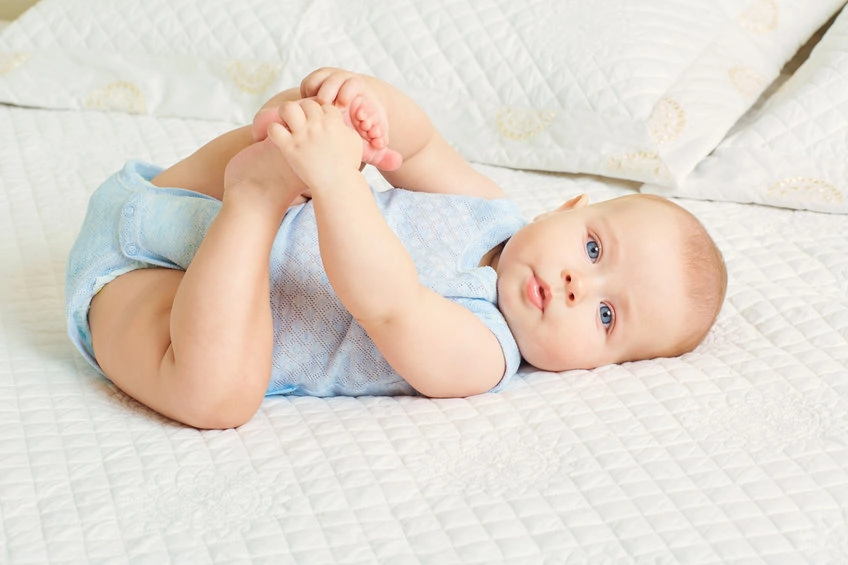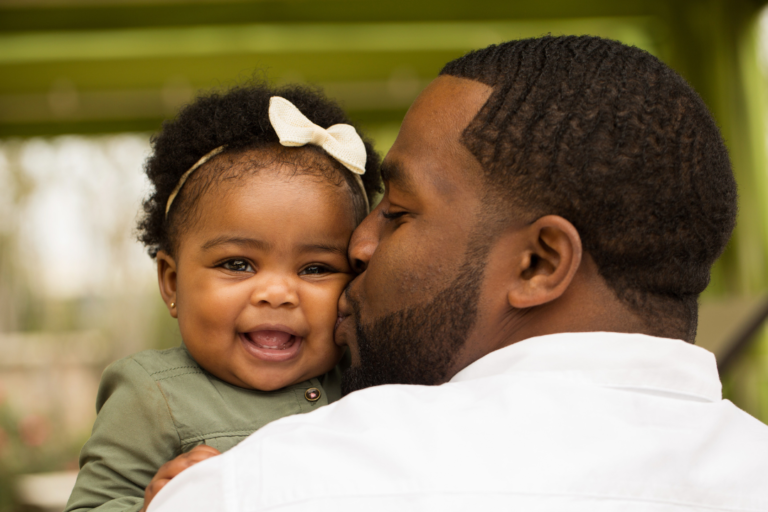The day Jimmy was born, the doctor shouted “It’s a boy!” and dad instantly said, “Oh wow – a rugby player!” Mom immediately thought: “Over my dead body will my little treasure get knocked around on a rugby field.”
Ten years later, of course mom found herself shouting with pride from the sidelines of the rugby field and wondering how her little treasure became such a strong, fast, coordinated and very focused little sportsman.
Looking back, Jimmy was preparing for his day on the rugby field from the day he was born, and there are things we can do with our baby that offer developmental benefits for there future sporting activities such as:
Muscle tone
Even in utero, the little vestibular system in your baby’s ear was registering movement. Swaying in the watery womb and later swooping through the air as Dad playing airplanes gives strong movement input into the brain. This movement input contributes to the development of muscle tone. Adequate muscle tone helps us to develop balance and coordination that is essential for sport.
To build your baby’s muscle tone:
- Expose them to lots of movement activities such as a swing or slide.
- Wear your baby in a baby sling when little.
- If your toddler’s muscle tone is a little low and they seem floppy, have him bounce on a trampoline to build up muscle tone.
Balance
The ability to remain upright whether we are moving at speed or after performing a pirouette in ballet is dependent on a good sense of balance. Balance develops from the first six months of life.
You can help your baby’s balance by:
- Encourage your little baby to play with his toes and develop his tummy muscles which are important for balance.
- Playing games such as ‘ride the horse’ on your lap in the first year.
- Buy a little black bike or a see-saw which will encourage your toddler to develop his balance.
- Later, teach your preschooler to ride a bike and play games such as balancing on a rope laid on the ground.
Bilateral integration
The skill of coordinating the two sides of the body is vital for sports such as karate, rowing, and swimming. The crawling stage is fundamental to this skill.
Make sure your baby crawls in the first year by:
- Giving your 0-3-month-old lots of time to play on his tummy on the floor. ‘Tummy time’ builds up the tone in neck and back which is vital for crawling later.
- Do not use a walking ring at all as these discourage your baby from crawling.
- Help your three-year-old to hop and your preschooler to skip.
- Climbing jungle gyms encourage the coordination of the two sides of the body.
Eye-hand coordination & motor planning
In order to hit a tennis ball or kick a goal in soccer, your child must learn to coordinate his hand or foot to connect at the right time with a moving object. This coordination requires a good knowledge of his body in space as well as good timing and motor planning.
To encourage eye-hand coordination:
- Hang a balloon over your baby as he lies on the mat – he will start to swipe and reach for the balloon (safety – make sure he cannot pop the balloon).
- Roll a ball towards your sitting baby – his eyes will track the moving object.
- Give your toddler a stick to hit a big beach ball.
- Teach your preschooler to catch by starting with large balls and moving onto smaller balls as he gets older.
Jimmy’s mom had given him lots of opportunities to develop his physical skills over the past 10 years. Of course, while Jimmy was developing all the necessary physical attributes, mom had had a big shift of heart about rugby and had realised that sport is vital in her little guy’s life. Being sporty has meant that Jimmy:
- Is not a couch potato and has a decreased risk of having weight problems, which has reached epidemic proportions in many western countries.
- Has great self-esteem and feels part of a team of friends.
- Has an outlet for all that pent up boy-energy which would otherwise lead Jimmy into a whole lot of mischief.
- Can concentrate on his schoolwork and homework as he gets a good dose of movement input through his muscles which are known to help us focus.
- Sleeps better at night after a day full of movement and proprioceptive (muscle work) activity.
- Experiences being part of a team and how teams work together, which will be advantageous later in life.
There is no question that sport of any kind, be it very coordinated such as hockey or ballet or more endurance related such as running or swimming; is vital for our kids. Knowing the importance though, can lead us to pressurise our kids too much. It is vital that children learn that although sport and physical exertion is important, being a winner is not. Make sure you do not pressurise your child by focusing only on achievement. Rather shift the focus to participation and reward your child more for trying than for success.




